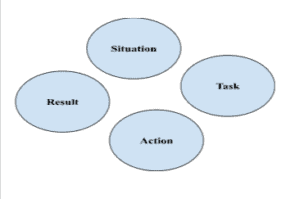Are you looking for a job role in New York as a product manager? Then, you are in the right place.
Product managers drive innovation, lead teams, and shape successful product development strategies in the fast-paced and ever-evolving tech industry. For aspiring candidates, the perfect job opportunity in the dynamic metropolis of New York City, partnering with top headhunting firms, can be a game-changer. These firms are renowned for identifying and connecting exceptional talent with the right companies.
This guide will explore how top headhunting firms in NYC shortlist product managers’ profiles. As a product manager looking to advance your career, understanding this rigorous and strategic approach can provide valuable insights to stand out in the competitive job market.
Let’s delve into this guide now:
Understanding The Requirements
To effectively start the shortlisting process for product managers’ profiles, experts at headhunting firms thoroughly understand the specific requirements of their clients. This involves close collaboration and communication with the hiring companies to grasp their product vision, company culture, and long-term objectives.
By deeply understanding the role’s nuances at the best companies for product managers, headhunters accurately match candidates with the right skills and experiences.
Identifying Key Skills And Experience
Product managers are in demand for their unique skill set that blends technical insignia with business-savvy ideas. Headhunting firms meticulously identify vital skills and experiences expected from product managers, including project management, market analysis, strategic planning, and effective communication.
Therefore, candidates with a well-rounded set of skills have a higher chance of making it to the shortlist.
Assessing Relevant Experience
There are more chances of being shortlisted when you have relevant work experience. Headhunters evaluate your past work experiences and the projects you have managed to assess your ability to handle real-world challenges. Candidates with a track record of successful product launches and achievements are given priority.
So, you must add your work experience to your resume when applying for a product management role. Your resume reflects your professional journey and accomplishments and is the first document that headhunters and hiring managers will review.
Analyzing Achievements And Impact
Exceptional product managers can demonstrate quantifiable achievements and their impact on products or companies. Headhunters pay close attention to candidates who have made a tangible difference, such as improving revenue, increasing customer satisfaction, or launching groundbreaking products.
These accomplishments demonstrate a candidate’s ability to drive results.
Cultural Fit And Soft Skills
Along with technical skills, a candidate must fit within the company’s culture and soft skills. Do you know it is a critical consideration in the shortlisting process? As a Product manager, you must work collaboratively with cross-functional teams and stakeholders, making effective communication, adaptability, and emotional intelligence essential.
Headhunters assess these soft skills to ensure that you will thrive in the company’s environment or not.
Evaluating Leadership Potential
Leadership is an indispensable trait for product managers, as they need to inspire teams, make critical decisions, and drive product strategies. Most headhunting firms seek candidates with strong leadership potential and a proven track record of leading successful initiatives.
Demonstrating leadership abilities can significantly enhance a candidate’s chances of being shortlisted.
Reviewing Educational Background
While experience and skills hold substantial weight, a candidate’s educational background can add value to their profile. These firms evaluate how a candidate’s academic qualifications align with the industry or product domain. Advanced degrees or specialized certifications provide an edge in certain sectors.
As a candidate, mention all the relevant educational qualifications and certifications in your resume. Your educational background can complement your work experience and skills, showcasing your dedication to continuous learning and expertise in specific areas.
Conducting Behavioral Interviews
Behavioral interviews are a crucial aspect of the candidate’s evaluation process conducted by headhunting experts. To excel in behavioral interviews, candidates should thoroughly prepare to showcase their problem-solving prowess and critical thinking skills. Articulating specific examples from their past experiences and explaining how they handled challenging situations will demonstrate their ability to tackle complex problems effectively.
Moreover, these interviews provide valuable insights into a candidate’s behavioral competencies, helping headhunters identify those with the right qualities for the product management role.
Cross-Referencing References
During the shortlisting process, headhunting firms cross-reference candidates’ references to validate their achievements and character. They reach out to former colleagues and supervisors to gain valuable insights into the candidate’s work ethic, teamwork, and overall performance.
By doing so, headhunters ensure that the candidate’s information aligns with their real-life experiences and assess whether they are a reliable and suitable fit for the product management role.
Leveraging Technology And Data
Leading headhunting firms in NYC use advanced technology and data-driven methods to find potential candidates quickly and efficiently. They use tools and other platforms to streamline the shortlisting process, making matching candidates with the right companies easier. By harnessing technology, headhunters can swiftly identify suitable candidates based on their skills and experiences and make well-informed decisions.
This data-driven approach ensures that the candidates presented to the hiring companies are the best possible fits for the product management roles, saving both time and effort in the hiring process.
Conclusion
Securing a role as a product manager in the competitive tech industry requires a strategic approach and the right connections. Top headhunting firms in NYC excel at shortlisting exceptional product managers’ profiles by understanding the unique requirements of their clients, assessing essential skills and experiences, and gauging cultural fit and leadership potential. By comprehending this meticulous process, aspiring product management professionals can position themselves for success and open doors to exciting career opportunities.
Partnering with headhunting firms can be a decisive step toward finding the ideal role that aligns with one’s skills and aspirations, paving the way for a fulfilling and rewarding career in product management.
If you are looking for a product manager’s job role in New York or an organization seeking talented professionals to enhance your product team, consider visiting Palarino Partner, the best product management headhunter, today.













